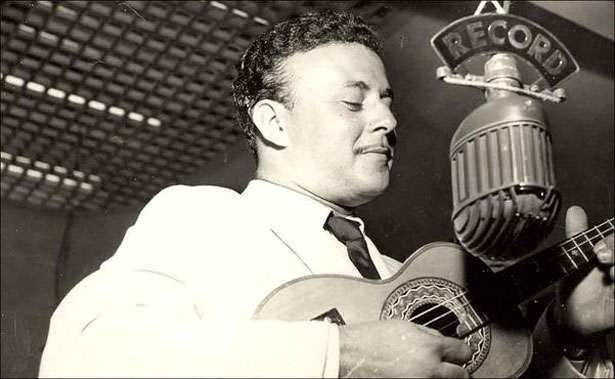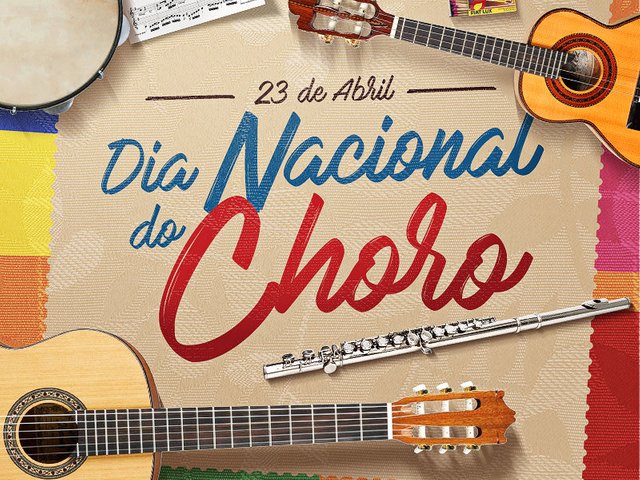Steemit OPEN MIC Week 103- Cover- WALDIR AZEVEDO- "CARIOQUINHA" (Electric Mandolin cover) By @Josevallera




Hola hola amigos steemians, para esta semana del concurso openmic, les traigo una version de un "chorinho" titulado "Carioquinha", de la autoria de uno de los grandes en la musica Brasilera como lo es, el maestro Waldir Azevedo, músico y compositor brasileño, nacido el 27 de enero de 1923 en Río de Janeiro. Puedo decir de este genero como lo es el "chorinho", que representa lo que podemos afirmar como siendo la estética musical genuinamente Brasileña, alineándose en importancia con la samba y la bossa nova, además, estilos que sufrieron influencia directamente de este genero. Surgió en la mitad del siglo XIX, y popularizado más activamente en el siglo XX, el "chorinho" fue formado por las influencias europeas vividas en la colonización y también por influencia africana traída por los esclavos y sus descendientes. En términos de estructura, sigue el patrón de la forma rondó (siempre de nuevo a la primera parte después de pasar a través de cada uno). Algunas personas dicen que el choro es una suerte de jazz brasileiro, pero resulta que, a pesar de tener en común la improvisación, el choro surgió antes que el jazz, por tanto este último es el que debería llamarse “choro estadounidense”. Además, su origen es diferente. El jazz procede de la cultura negra estadounidense mientras que el choro tiene un origen europeo, principalmente de la polca. Una afirmación más correcta sería que el choro es a la música brasileña lo que el jazz a la estadounidense.
En sus inicios, los conjuntos regionales de choro estaban formados por músicos aficionados que se reunían en cafés o bares por el placer de interpretar la música y crear nuevas composiciones en base a improvisaciones; sin embargo, con el tiempo los conjuntos evolucionaron convirtiéndose en grupos de verdaderos profesionales y pueden estar compuestos por dúos, tríos y hasta por orquestas completas. Un género musical siempre abierto al cambio y que ha ido transformándose permanentemente desde esos primeros días cuando nació como una reinterpretación carioca de la polca europea. "Choro" puede derivar de la manera "chorosa" (en portugués, llorosa) de tocarse la música extranjera al final del siglo XIX: quienes la escuchaban y apreciaban la llamaban "música de hacer llorar", No obstante, a pesar de lo que pudiera parecer, el Choro Brasileño no es una música triste ni mucho menos. Se trata más bien de melodías llenas de fuerza, generalmente rápidas y alegres, mezcla de la manera sentimental que tenían los portugueses de tocar los ritmos europeos y el toque característico de los músicos africanos.
En los últimos años, este ritmo nacido en Rio de Janeiro y convertido en una de las señas de la identidad musical del país ha recobrado el lugar que le corresponde en el panorama artístico a tal punto que se ha establecido el 23 de abril como el Día Internacional del "Choro" Brasileño... Bueno amigos espero les haya gustado, de todo corazon les recomiendo que sin aun no han tenido el placer de conocer este genero, haganlo!!! es sencillamente genial!!!
Y como siempre un especial agradecimiento a todos los personajes que hacen que todo esto suceda... @pfunk, @ausbitbank, @curie, @verbal-d, @Krystle, @aggroed, @luzcypher.... a todos ellos muchisimas gracias....!!!

Hello hi friends steemians, for this week of the openmic contest, I bring you a version of a "chorinho" entitled "Carioquinha", from the author of one of the greats in Brazilian music as it is, the teacher Waldir Azevedo, musician and composer Brazilian, born on January 27, 1923 in Rio de Janeiro. I can say of this genre as is the "chorinho", which represents what we can affirm as being the genuinely Brazilian musical aesthetic, aligning itself in importance with samba and bossa nova, in addition, styles that directly influenced this genre. It emerged in the mid-nineteenth century, and popularized more actively in the twentieth century, the "chorinho" was formed by European influences lived in the colonization and also by African influence brought by slaves and their descendants. In terms of structure, follow the pattern of the rondo form (always back to the first part after passing through each). Some people say that the choro is a kind of Brazilian jazz, but it turns out that, despite having in common improvisation, the choro came before jazz, so the latter is what should be called "American choro". In addition, its origin is different. Jazz comes from the American black culture while the choro has a European origin, mainly from the polka. A more correct statement would be that choro is to Brazilian music what jazz is to American music.
In the beginning, the regional groups of choro were formed by amateur musicians who met in cafes or bars for the pleasure of interpreting music and creating new compositions based on improvisations; However, over time the ensembles evolved into groups of true professionals and can be composed of duos, trios and even full orchestras. A musical genre always open to change and that has been transforming permanently since those early days when it was born as a re-interpretation of the European polka. "Choro" can derive from the "chorosa" way (in Portuguese, tearful) of playing foreign music at the end of the 19th century: those who listened to it and appreciated it called it "music to make people cry", nevertheless, despite what It might seem, the Brazilian Choro is not a sad music, far from it. It is more about melodies full of strength, usually fast and happy, mixing the sentimental way that the Portuguese had to play the European rhythms and the characteristic touch of the African musicians.
In recent years, this rhythm born in Rio de Janeiro and become one of the signs of the country's musical identity has regained its rightful place in the artistic scene to such an extent that it has been established on April 23 as the Day International of the "Choro" Brazilian ... Well friends I hope you liked it, with all my heart I recommend that without even having the pleasure of knowing this genre, do it !!! It is simply great!
And as always, a special thanks to all the characters that make this happen ... @pfunk, @ausbitbank, @curie, @ verbal-d, @Krystle, @aggroed, @luzcypher ... to all of them very many thanks .... !!!

▶️ DTube
▶️ IPFS


Dear Artzonian, thanks for using the #ArtzOne hashtag. Your work is valuable to the @ArtzOne community. Quote of the week: Art, freedom and creativity will change society faster than politics. -Victor Pinchuk
Congratulations! This post has been upvoted from the communal account, @minnowsupport, by josevallera from the Minnow Support Project. It's a witness project run by aggroed, ausbitbank, teamsteem, someguy123, neoxian, followbtcnews, and netuoso. The goal is to help Steemit grow by supporting Minnows. Please find us at the Peace, Abundance, and Liberty Network (PALnet) Discord Channel. It's a completely public and open space to all members of the Steemit community who voluntarily choose to be there.
If you would like to delegate to the Minnow Support Project you can do so by clicking on the following links: 50SP, 100SP, 250SP, 500SP, 1000SP, 5000SP.
Be sure to leave at least 50SP undelegated on your account.
Congratulations @josevallera! You have completed the following achievement on the Steem blockchain and have been rewarded with new badge(s) :
Click on the badge to view your Board of Honor.
If you no longer want to receive notifications, reply to this comment with the word
STOP